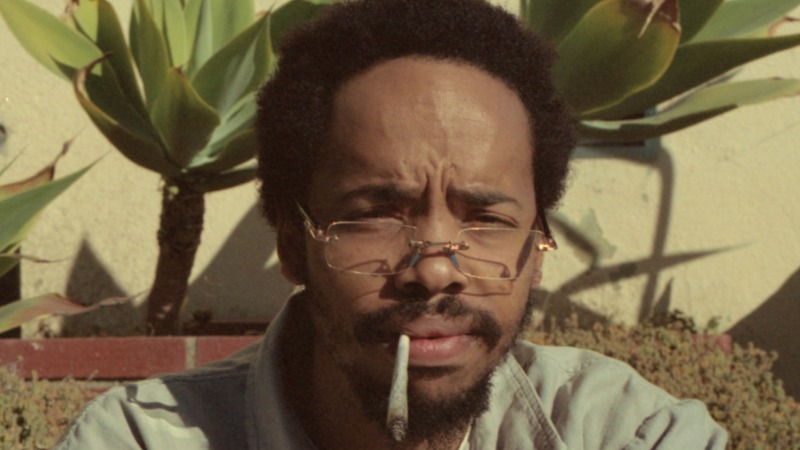Earl Sweatshirt Remains Unburdened By the Powers That Be On Live Laugh Love
Earl’s blatant disregard for drum kits, hooks, and common time signatures connects the sampling antics of MF DOOM to the mood-over-form impulses of MIKE and Medhane, strengthening the argument that he is, in fact, still one of the coolest and most-inventive MCs alive.

For a man who doesn’t subscribe to the rigor of celebrity, Earl Sweatshirt’s well-being draws an oversized level of interest. It’s a somewhat inevitable fate: Thebe Kgositsile’s rise to fame in Odd Future, the first internet famous rap group, practically guaranteed forum boards of past and present would stay interested in his every move. At just 16, Earl Sweatshirt caught the attention of every hot blog when his mother sent him to a rehabilitation school in Samoa and Odd Future’s fans began chanting “Free Earl” to anyone who would listen. His disappearance and the subsequent campaign placed an unfathomable spotlight on a then-teenager’s family life. Even now, a decade later—even after Earl Sweatshirt embraced his stardom, focused on his health, and started a family of his own—swarms of fans still regularly concern themselves with whether the man is doing okay. Live Laugh Love isn’t Earl Sweatshirt’s first guarantee of well-being, but it’s certainly his most explicit.
For years, this parasocial hand-wringing over Earl’s mental health was only exacerbated by his music—his early 2010s records were all deathly bleak. Among them, the cult favorite Solace EP frankly laid out the “tar pit of [his] ways.” The music fractured into rougher samples, less forthright rhythms, and rawer vocal takes. Lyrics explicitly referenced harrowing loneliness and suffocating grief, even predicting an early death. It felt like the product of a totally broken psyche undertaking an opaque creative endeavor. Earl then mingled with experimental jazz troupe Standing on the Corner and made Some Rap Songs, an album eschewing the aesthetic of the late 2010’s rap underground in favor of dense, hazy, and concise performances. His blatant disregard for drum kits, hooks, and common time signatures connected the sampling antics of MF DOOM to the mood-over-form impulses of MIKE and Medhane. Some Rap Songs endures not only as a benchmark of Earl’s artistic capacity, but as another stark look into the rapper’s rock bottom.
-

-

-

-

-

-

-

-

-

-

-

-

-

-

-

-

-

-

-

-

-

-

-

-

-

-

-

-

-

-

-

-

-

-

-

-

-

-

-

-








































